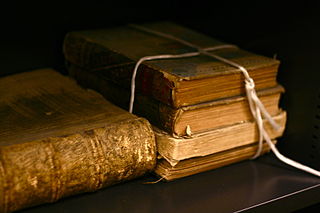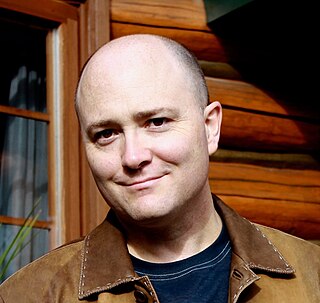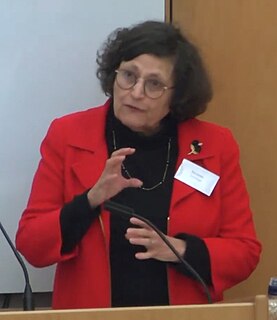
Intellectual property (IP) is a category of property that includes intangible creations of the human intellect. There are many types of intellectual property, and some countries recognize more than others. The best-known types are copyrights, patents, trademarks, and trade secrets. The modern concept of intellectual property developed in England in the 17th and 18th centuries. The term "intellectual property" began to be used in the 19th century, though it was not until the late 20th century that intellectual property became commonplace in the majority of the world's legal systems.

A patent is a type of intellectual property that gives its owner the legal right to exclude others from making, using, or selling an invention for a limited period of time in exchange for publishing an enabling disclosure of the invention. In most countries, patent rights fall under private law and the patent holder must sue someone infringing the patent in order to enforce their rights. In some industries patents are an essential form of competitive advantage; in others they are irrelevant.

Stanford Law School is the law school of Stanford University, a private research university near Palo Alto, California. Established in 1893, it is consistently regarded as one of the most prestigious law schools in the world. Stanford Law has been ranked among the top three law schools in the United States every year since 1992, an accomplishment shared only by Yale Law School.

Millar v Taylor (1769) 4 Burr. 2303, 98 ER 201 is an English court decision that held there is a perpetual common law copyright and that no works ever enter the public domain. It represented a major victory for the bookseller monopolies.
Wheaton v. Peters, 33 U.S. 591 (1834), was the first United States Supreme Court ruling on copyright. The case upheld the power of Congress to make a grant of copyright protection subject to conditions and rejected the doctrine of a common law copyright in published works. The Court also declared that there could be no copyright in the Court's own judicial decisions.
Intellectual property rights (IPRs) have been acknowledged and protected in China since the 1980s. China has acceded to the major international conventions on protection of rights to intellectual property. Domestically, protection of intellectual property law has also been established by government legislation, administrative regulations, and decrees in the areas of trademark, copyright, and patent. This has led to the creation of a comprehensive legal framework to protect both local and foreign intellectual property. Despite this, copyright violations are extremely common in the PRC. The American Chamber of Commerce in China surveyed over 500 of its members doing business in China regarding IPR for its 2016 China Business Climate Survey Report, and found that IPR enforcement is improving, but significant challenges still remain. The results show that the laws in place exceed their actual enforcement, with patent protection receiving the highest approval rate, while protection of trade secrets lags far behind. Many US companies have claimed that the Chinese government has stolen their intellectual property sometime in 2009–2019.
The history of patents and patent law is generally considered to have started with the Venetian Statute of 1474.

Norman Stephan Kinsella is an American intellectual property lawyer, author, and deontological anarcho-capitalist. His legal works have been published by Oxford University Press, Oceana Publications, Mises Institute, Quid Pro Books and others.
The DePaul University College of Law is the professional graduate law school of DePaul University in Chicago. The College of Law’s facilities encompass nine floors across two buildings, with features such as the Vincent G. Rinn Law Library and Leonard M. Ring Courtroom. The law school is located within two blocks of state and federal courts, as well as numerous law firms, corporations and government agencies.

Jessica Litman is a leading intellectual property scholar. She has been ranked as one of the most-cited U.S. law professors in the field of intellectual property/cyberlaw.
J. Thomas McCarthy is a Professor Emeritus at the University of San Francisco School of Law. He is the founding director of the McCarthy Institute for Intellectual Property and Technology Law. He has practiced, written, and taught in the field of trademarks and unfair competition and was a frequent speaker on the subject. McCarthy is a member of the California and U.S. Supreme Court bars and is admitted to practice before the United States Patent and Trademark Office.

The public domain consists of all the creative work to which no exclusive intellectual property rights apply. Those rights may have expired, been forfeited, expressly waived, or may be inapplicable.
John R. "Jay" Thomas is a professor of law at Georgetown University Law Center.
Ian Ballon is an Internet and intellectual property litigator, author of books on Internet law and Executive Director of Stanford University Law School's Center for E-Commerce. He is the author of the 4-volume legal treatise, E-Commerce and Internet Law: Treatise with Forms 2d edition, the leading legal reference book on Internet law, which was first published in 2000. A second edition was published in 2008 and is updated annually. He is also an intellectual property litigator with Greenberg Traurig LLP, a firm of approximately 1800 lawyers.
David Nimmer is an American lawyer, law professor, renowned as an expert in United States copyright law. He received an A.B. with distinction and honors in 1977 from Stanford University and his J.D. in 1980 from Yale Law School, where he served as editor of the Yale Law Journal. David Nimmer is of counsel to Irell & Manella LLP in Los Angeles, California. He also serves as a Professor from Practice at University of California, Los Angeles Law School and Distinguished Scholar at the Berkeley Center for Law and Technology. In 2000, he was elected to the American Law Institute. He has served as a guest professor at the University of Haifa, Yeshiva University, the University of Miami, and Syracuse University.
Roger M. Milgrim is an American intellectual property lawyer, and the author of two multivolume law treatises: Milgrim on Trade Secrets and Milgrim on Licensing.
Harold George Fox, was a Canadian lawyer, scholar, and businessman. He was widely known for his texts on Canadian intellectual property law, litigation, and for his involvement in the zipper business.

Shamnad Basheer was an Indian legal scholar and founder of the blog SpicyIP. He was also the founder of IDIA, a trust which works on making legal education accessible for underprivileged students. Basheer was a Ministry of Human Resource Development Chaired Professor of Intellectual Property Law at the WBNUJS, Kolkata, and the Frank H. Marks Visiting Associate Professor of Intellectual Property Law at the George Washington University Law School, and a research associate at the Oxford Intellectual Property Research Center (OIPRC). He founded several initiatives such as SpicyIP, IDIA, P-PIL and Lex Biosis. Basheer intervened in the landmark Novartis case, filed a number of other public interest litigations and took initiative to bring about changes in the IPR regime in India.

Dan L. Burk is Chancellor's Professor of Law at the University of California, Irvine School of Law and is a founding member of the law faculty. His areas of expertise include intellectual property, gene patenting, digital copyright, electronic commerce and computer trespass.

Rochelle Cooper Dreyfuss is an American attorney who is the Pauline Newman Professor of Law and Co-Director of the Engelberg Center on Innovation Law & Policy at New York University School of Law.










